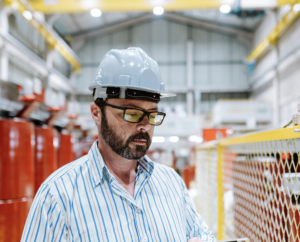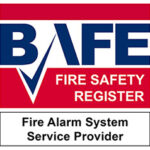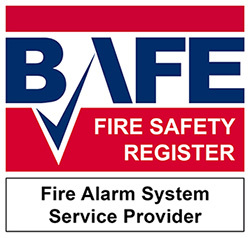An essential guide to fire safety in commercial kitchens
Fire safety in commercial kitchens is not just a legal requirement; it’s a crucial aspect of running a successful and safe food establishment. It’s no secret that commercial kitchens are very busy and very stressful places to work, and when combined with all the numerous fire sources and materials present, a fire can easily and quickly start.
In this guide, we’ll cover everything you need to know about fire safety in commercial kitchens. From the proper commercial kitchen fire protection measures to the current fire safety regulations, this guide will equip you with the knowledge you need to ensure you can prevent fires effectively in your commercial kitchen.
What are the common causes of fire in commercial kitchens?
Understanding the common causes of fire in commercial kitchens is key for maintaining a safe environment. It comes as no surprise that the most frequent culprit of a commercial kitchen fire comes from cooking oils, fats, and grease, which can ignite very easily when overheated or left unattended.
Some other common causes of kitchen fires include:
- Distractions and lack of concentration – constant supervision is needed when dealing with hot oil and fat. A safe cooking temperature is 205˚C, but if this rises to 230˚C or above through distractions or being left unsupervised, flammable vapours are given off. The risk of spontaneous ignition also starts to become significant when the temperature rises over 300˚C.
- Faulty equipment – much of the equipment used in commercial kitchens is electrical, which can give off sparks when not in a prime condition, and this could lead to disastrous consequences when in the vicinity of hot oils or fat.
- Dirty extraction systems – grease can accumulate in extraction units and ducts, and this can be easily ignited by sparks or flames.
- Poor training – workers who haven’t received proper fire safety training in all the necessary aspects of fire safety can pose a serious risk should the worst happen.
There are a number of significant fire risks in a commercial kitchen and being aware of these allows you to implement proactive fire safety measures to help protect your kitchen, staff, and your customers.
What are the current fire safety regulations for commercial kitchens?
As with all other commercial premises, the fire safety regulations that apply to restaurants and other businesses that operate a commercial kitchen is the Regulatory Reform (Fire Safety) Order 2005. Some key requirements of this legislation include:
- Conducting a fire risk assessment – to identify fire risks in your premises and the measures that need to be implemented to mitigate these risks.
- Installing fire detection and alarm systems – to provide early warning in the event of a fire.
- Implementing evacuation procedures and emergency lighting – to help guide both staff and customers to safety if a fire is detected.
- Having the right firefighting equipment – this may include fire extinguishers, fire suppression systems, fire blankets, or a combination of these.
- Providing staff training – to train all staff in commercial kitchen fire safety and the proper use of firefighting equipment.
- Carrying out regular servicing – to ensure all your fire safety measures are in optimal working order.
The “responsible person” (usually a business owner, employer, or manager) has a legal requirement to adhere to these regulations to ensure the safety of their premises, employees, and customers. Failing to comply can lead to legal consequences including fines, prosecution, and even imprisonment in serious cases of neglect.
How can you reduce fire risk in commercial kitchens?
There are a number of best practices you can implement in your commercial kitchen to help reduce the risk of fire, as we highlight below.
Install fire suppression for commercial kitchens
As we’ve mentioned, fires involving hot oil and fat can not only start quickly, but can also very easily become out of control. Fire suppression for commercial kitchens are normally found in areas where there is significant risk to fire. These systems can automatically detect a fire and use targeted wet chemical agents to extinguish it. The importance of fire suppression systems in a commercial kitchen cannot be underestimated, and it’s definitely something you should consider installing in your premises.
Install fire extinguishers
A fire suppression system is great for covering larger parts of your kitchen where you know the risk is particularly high, but for additional or more targeted protection, wet chemical fire extinguishers can also be located around your kitchen. These extinguishers are ideal for tackling Class F fires which are fires that involve oil, fat, and grease. Speaking with professional fire safety experts, like Hoyles, can help you determine where these can be strategically placed in your commercial kitchen so they’re easily accessible.
Invest in explosion-resistant lights
Glass can shatter when exposed to high temperatures, and this adds another significant safety risk to the mix. Explosion-resistant lighting is usually enclosed in a steel or aluminium frame and uses thick lenses that don’t crack or shatter in a fire. This not only reduces the potential damage caused, but also protects against injury in the event of a fire.
Conduct regular maintenance of equipment
It’s important that you establish a rigid schedule so that all your equipment is regularly inspected and serviced by a qualified professional to ensure it is safe to use. This includes cooking equipment and firefighting equipment. By ensuring all appliances and fire protection equipment is regularly inspected and maintained, not only do you decrease the risks of malfunctions that could potentially lead to fires, but it also ensures everything is in optimal working order, and that you’re complying with fire safety regulations
Frequent cleaning to reduce build up of combustible substances
Regularly cleaning your equipment is key to minimising the potential risk of a fire being caused by combustible substances such as accumulated grease, oil, and food debris. Thoroughly cleaning kitchen equipment such as extraction ducts, surfaces, hoods, floors, and other equipment, prevents build-up of these fire sources and minimises the chances of a fire starting.
Fire safety training
Ensuring all members of staff working in your kitchen are fully trained on fire safety protocols not only equips them with the knowledge on what to do if a fire starts, but also educates them on just how easily one can start in a commercial kitchen. It should cover topics such as the proper use, handling, and storage of flammable materials, the correct use of firefighting equipment, and evacuation procedures for example. You should also ensure regular refresher training is provided so everyone can keep up-to-date with fire safety protocols and that no one becomes complacent about the risks.
Trust us for commercial kitchen fire protection
We hope our guide to fire safety in commercial kitchens has given you a better understanding of how you can protect your business, employees, and customers from the risks of fire. If you manage a commercial kitchen and need professional help in implementing fire safety measures in your premises, our expert team here at Hoyles Fire & Safety can help.
For decades, we’ve helped businesses from all types of industries protect their premises, staff, and visitors from the threat of fire while ensuring their compliance with fire safety legislation. If your commercial kitchen is located in Leeds, Bradford, Huddersfield, or anywhere else across the UK, don’t hesitate to contact us today.
From conducting a fire risk assessment for your kitchen, to installing commercial kitchen fire suppression, we can help safeguard your business from fire. We’re also backed by the LS Fire Group, meaning we can offer our services nationwide with the help of our partner brands.
Commercial kitchen fire protection FAQs
What fire protection systems are required for a commercial kitchen?
This will ultimately be determined by a thorough fire risk assessment, but commercial kitchens should have a combination of fire suppression systems, fire extinguishers, and fire detection alarms for example. This is to ensure complete protection should a fire occur.
How can I ensure my commercial kitchen meets fire safety regulations?
To comply with fire safety regulations, ensure your kitchen has:
- A properly installed and maintained fire suppression system
- Regular fire risk assessments and inspections
- Staff trained in fire prevention and emergency response
- Clearly marked fire exits and evacuation plans
- Adequate fire extinguishers and fire alarms
How often should fire suppression for commercial kitchens be serviced?
Fire suppression systems should be professionally inspected and serviced at least annually, if not every six months to ensure proper functionality. It’s also recommended to conduct regular additional maintenance, such as checking nozzles, inspecting the suppression agent supply, and ensuring manual activation mechanisms are functional, to ensure it’s in full working condition.


